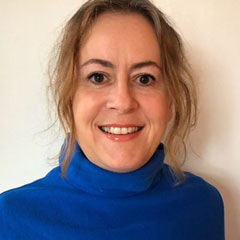Dusana Dorjee, Senior Lecturer in Psychology in Education, Department of Education
Dusana is a clinical psychologist and cognitive neuroscientist by training, and integrates her expertise in both areas of her research on mental health and well being development in children and adolescents.

Building on this research, she was an academic consultant for the Health and Well being areas of learning for the new Welsh curriculum, an advisor on three UNESCO initiatives focusing on social and emotional learning in schools, and currently advises the development of a new mental health and well being curriculum for primary schools in England.
email: dusana.dorjee@york.ac.uk
Our 60-second interview with Dusana:
Could you please tell us what work you do in the field of mental health?
My research aims to contribute to our understanding of the cognitive, affective and neurophysiological processes that underpin mental health and well being and how these processes develop in children and adolescents. I use both psychological and neurophysiological methods in this research, and work on translating the findings into learning outcomes that can be used to guide mental health and well being teaching and learning in schools.
What do you find most rewarding and inspiring in this work?
Moments when I see that mental health practitioners or teachers find the research we are doing useful in supporting children’s mental health and well being, and that children benefit from it. And also the continuous learning from colleagues, mental health practitioners, teachers, children, young people etc. that further inspires my curiosity and resulting research.
What is the most challenging or complicated aspect of this work?
For me it is the lack of alignment between research, policy and practice. It typically takes a very long time for relevant research to impact education policy and translate into practice in schools (and often it doesn’t translate into practice at all). As a result robust innovative research frequently isn’t making the real world impact that it is intended to make.
What impact do you hope your work is having - or can potentially have?
I hope that my research will contribute to development and implementation of school curricula which can incrementally and systematically, from early childhood, enable children and adolescents to acquire the knowledge and skills that can support their mental health and well being. I hope that we can start thinking about the importance of such learning in the same way as we think about learning to write, read or do maths.
Could you share with us one piece of advice that you follow for your own mental health?
Spending time in nature and practising meditation, both help me overthink less and see challenges from a wider perspective.